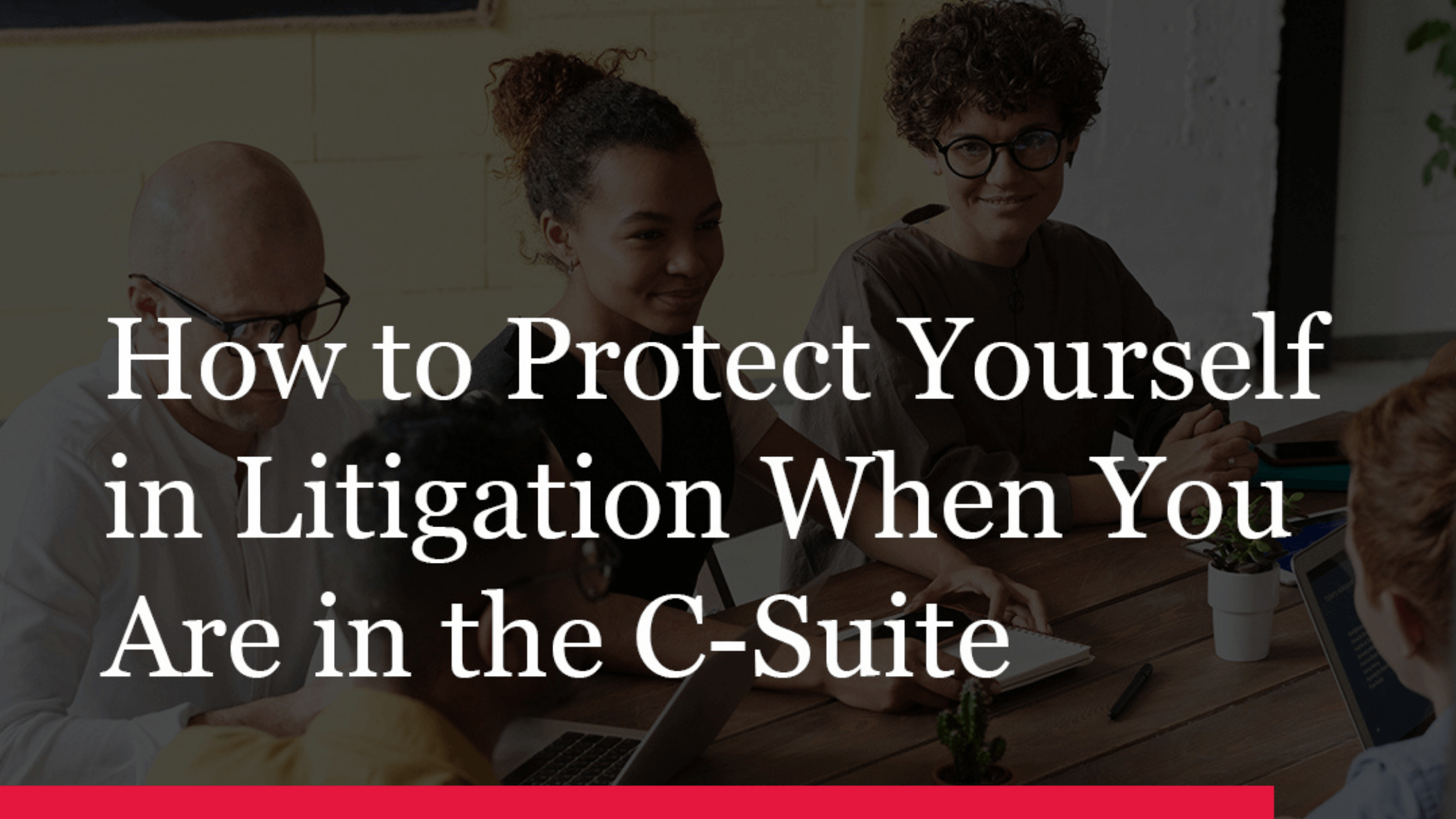As you rise in your career and at your company, you are going to find yourself reporting directly to the executive leadership team and inside the inner circle. The stakes are much higher now. Not just in your delivery of quality work and your contributions to the company’s bottom line, but also in the type of liability that may attach to you directly. You are now setting company policy, implementing personnel changes, making layoff and budget decisions and authorizing performance reviews and “for cause” terminations in your department or division.
You need to make sure that you clearly understand your obligations, your exposure, as well as the appropriate corporate insurance policies that will protect you in the event of a claim arising from the company’s business operations. This is important even if you only sit on the company board of directors and are not a direct employee.
Employment cases pose some interesting changes from the usual business scenarios. If the company declined to purchase the EPLI (employment practices liability insurance) rider, your company is going to need to retain its own counsel to handle litigation arising from discrimination, harassment, whistleblower or other retaliation claims. In a complaint that names only the company, even if you are a central figure in the allegations, the company is likely to represent you and defend you against the claims.
Even if you are covered under an EPLI policy and a large firm is providing insurance counsel on the case, remember that you may not be in the room when litigation decisions are being made and quite often, may not factor in the company objectives. Remember all that the insurance defense counsel do not report to you and hence, may not have your best interests in mind. Consider this particularly when you are directed to answer “I don’t know” or “I can’t remember” at depositions; you may be directed to obstruct the discovery process but you are also being made to look like a fool in the process.
If you are a separately named defendant, you may need to retain private counsel, separate from the company attorney to make sure that you are properly protected. Understand that the attorney representing the company was hired and paid for by the company and is charged with defending the company’s interests. While generally, that will involve defending your interests as well but there may be a point where the company’s litigation strategy or defense deviates from what would be best for you.
The Bottomline: Remain vigilant and always ask yourself whether the litigation strategy sounds like it is still taking care of your interests. Despite what you are being told, always do an independent “gut check” to make sure that you are not surprised later in the game.


